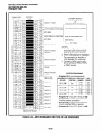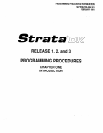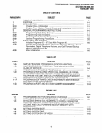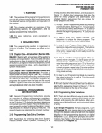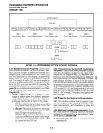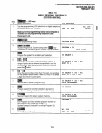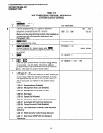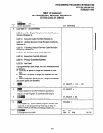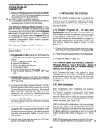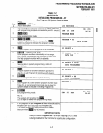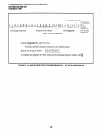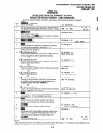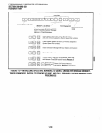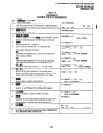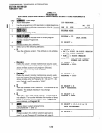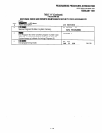
PROGRAMMING PROCEDURES-INTRODUCTION
SECTION 200-096-301
FEBRUARY 1991
0
I .
0
PCTU
or
PCTUS (Common Control Unit PCB):
A PCTU or PCTUS must be installed, and have
its jumpers set for live operation.
PEKU, PESU, or PDKU in slot 01
LCD program telephone connected to port 05,
equipped with programming template.
3.33 Minimum Software Requirements:
To pre-
pare the system software for programming, clear
the memory by initializing its data (with
Programs
90 and 92), as specified in this Section, Paragraph
4, lnifializing the System.
Next,
Program 03
must
be completed to inform software of the system’s
hardware configuration. Basic system program-
ming can then begin.
3.40 General Programming Procedures
3.41 The general procedure for programming a
system follows:
1)
2)
3)
4)
5)
6)
Programs
90 and 92 must be run to initialize the
system, this sets the following elements to initial
status:
2) Placethesystem powerswitch in theON position.
3) Follow the steps in Table 1 -C.
l
Data for
Programs 00 - 97
l
Speed Dial Memory
l
Character Message Memory
l
Timed Reminders
l
Digital Telephone Volume Levels
l
Call Forward Memory (POWER OFF then
4.20 Initialize Speed Dial Numbers, Character
Message Memory, Timed Reminders, Digital
Telephone Volume, and Call Forward Backup
I
Memory with Program 92
ON).
Program
03 must be run to inform the software
of the system hardware configuration.(POWER
OFF then ON).
4.21 Complete this step if the system is being
installed for the first time, or when all currently
programmed speed dial numbers or the like must
be deleted. Follow the steps in Table 1 -D and refer
to Figure l-3.
Ensure that the Basic System Record, Toll Re-
striction System Record and Least Cost Routing
System Record have been filled out. If they have
been filled out, continue with step 4. If not,
determine the customer’s hardware/software
configuration and continue with step 3.
4.30 After Initialization
In Section 200-096-302, complete record sheets
for basic programming, toll restriction, and least
cost routing.
4.31 Immediately after initializing the system,
Program
03 must be run to inform the software of
the system hardware configuration (see Table
I-E),
Program
00 to assign remote maintenance
security codes and to check the system software
level (see Table 1-F); and
Program
04 to assign
station numbers (see Table 1 -G).
From an LCD telephone connected to port 05
equipped with a programming template, enter
data from the record sheets. For help in entering
this data, see example Tables 1-A and 1-B in
this chapter.
4.32 Anytime after initialization, the time and date
can be set. This is not accomplished from the
programming station, but rather from the electronic
or digital telephone connected to port 00 (usually I
station number 200). Refer to Figures l-4, 1-5 and
1-6.
Set the date, time and day from an LCD tele-
4.33 All programs are entered from the LCD elec- :
phone connected to port 00.
tronic or digital telephone connected to port 05. I
4 INITIALIZING THE SYSTEM
4.01 This section exolains how to oreiare the
system software for programming. The ‘system’s
memory must be cleared by initializing its data.
Initializing data activates standard data assignments
(stored in ROM).
4.10 Initialize Programs 00 - 97 Data with
Program
90: Always initialize a system when it is
first installed, or when its software must be brought
to the default configuration. If only minor pro-
gramming changes are being added to a system in
which the programming is basically correct, skip
this section. Follow the steps in Table 1-C and
Figure l-2.
1) Ensure that the system meets minimum hard-
ware requirements specified in Paragraph 3.32.
1-6



